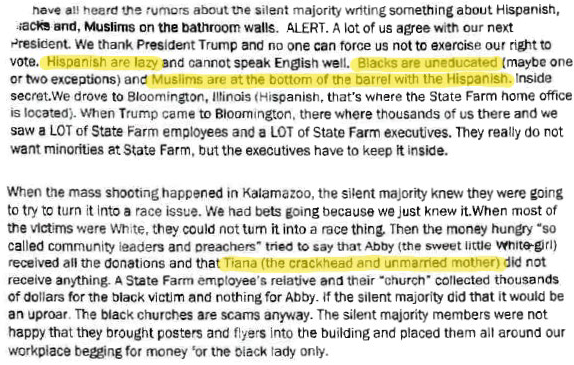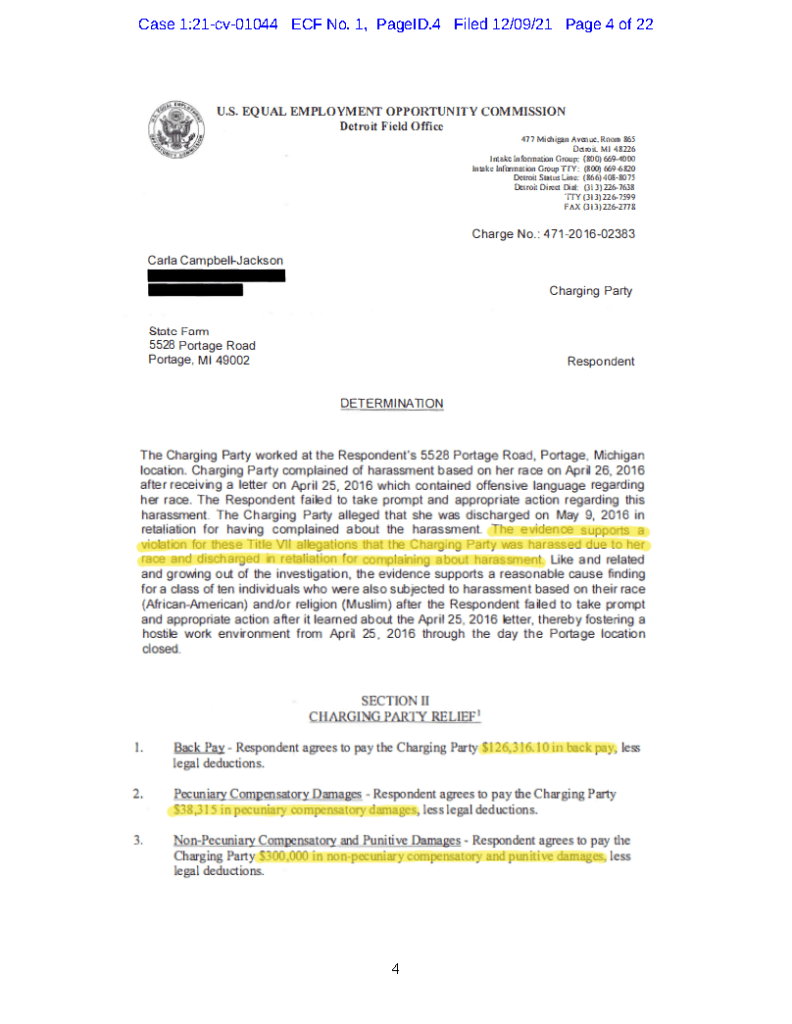State Farm Insurance Company is 100 years old. It is the largest property and casualty insurance and largest automobile insurance provider in the United States. State Farm has a huge presence in the insurance marketplace. A recent New York Times article, Where State Farm Sees ‘a Lot of Fraud,’ Black Customers See Discrimination-The giant insurer is facing lawsuits from customers, agents and former employees accusing it of racial discrimination,1 caught my attention. The article stated in part:
Insurers have a strong incentive to pay as little as possible in customer claims, since their business consists mainly of inflows of money from policy premiums and outflows from claims payouts, which they call ‘losses.’
But Mr. Williams felt he was being treated especially poorly because of his race. In 2019, he sued State Farm, accusing it of discrimination. His lawyer asked the judge in the case to certify the lawsuit as a class action after analyzing claims data in Illinois, where State Farm is the largest insurer. The judge said that analysis alone was not enough to justify forming a class.
Then, Carla Campbell-Jackson reached out.
Ms. Campbell-Jackson, a Black woman, had worked for State Farm for 28 years in Illinois and Michigan. In 2016, she was fired on the grounds that she had shared confidential information outside the company — a claim she denied. She said her firing had been the final act in a campaign by State Farm to discredit her after she raised concerns that the insurer was using fraud as a pretext to deny the insurance claims of Black customers.
The lawsuit filed by Campbell-Jackson2 states in part:
4. In April 2016, State Farm’s culture of racism and discrimination culminated in the form of a letter that, based on information and belief, was sent by a group of State Farm employees to Dr. Campbell-Jackson and other minority employees of State Farm. The letter was filled with blatantly racist and discriminatory language, including calling Hispanics “lazy,” African Americans “uneducated” and “crackheads,” Muslims “bottom of the barrel,” and stating that State Farm executives did not want to employ minorities.
5. Shortly after Dr. Campbell-Jackson expressed concerns about the letter, she was terminated in retaliation for articulating concerns relating to this blatantly racist and unacceptable conduct.
The complaint also included a determination made by the EEOC, which stated:
To be fair, State Farm has denied all these allegations. In an article in the Bloomington, Illinois-based Pantograph noted:
Gina Morss-Fischer, a spokeswoman for the Bloomington-based insurer, said Thursday, ‘While we admire Ben Crump’s important civil rights work, we fundamentally disagree with the facts Carla Campbell-Jackson is presenting in this case. We believe these allegations are without merit as they run counter to our values and who we are as an organization. In our defense of these allegations, we will provide important facts that Campbell-Jackson has failed to present.’3
This is not the first time that State Farm has been embroiled in discrimination complaints. I would suggest that readers of this blog read, Hindin v. State Farm – The Landmark Claims Practice Case That Few Know About Finally Ends, discussing what was known as the “Jewish Lawyers List.”
Thought For The Day
It’s the action, not the fruit of the action, that’s important. You have to do the right thing. It may not be in your power, may not be in your time, that there’ll be any fruit. But that doesn’t mean you stop doing the right thing. You may never know what results come from your actions. But if you do nothing, there will be no result.
—Mahatma Gandhi
_______________________________________
1 Flitter, Emily. Where State Farm Sees ‘a Lot of Fraud,’ Black Customers See Discrimination. New York Times. Mar. 18, 2022.
2 Campbell-Jackson v. State Farm Ins., No. 1:21-cv-01044, [Complaint, filed Dec. 10, 2021] (W.D. Mich.).
3 Watznauer, Kelsey. Ex-employee says State Farm’s ‘racism causes harm’; company denies allegations. The Pantagraph. Dec. 6, 2021.






